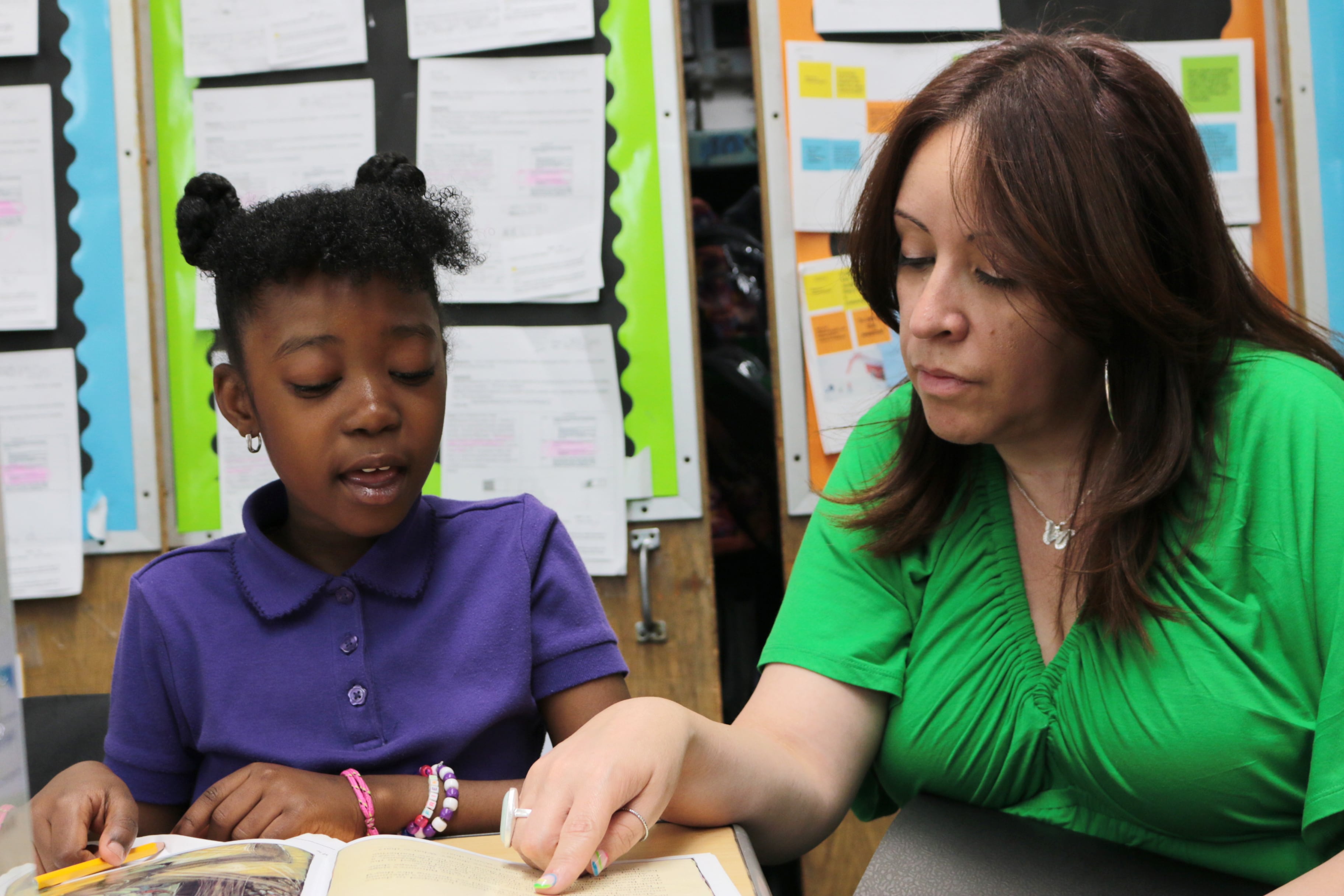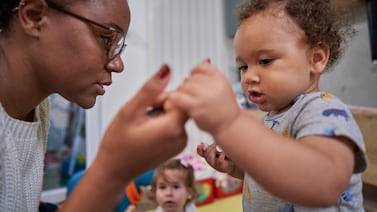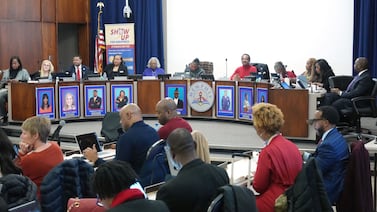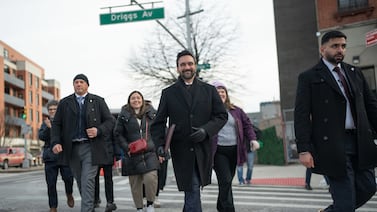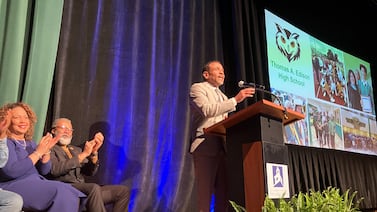Sign up for Chalkbeat New York’s free daily newsletter to keep up with NYC’s public schools.
Teacher preparation programs in New York and across the country have long faced criticism for not adequately training future educators to teach literacy, in part by failing to embrace long-standing evidence about how children learn to read.
Now, top New York education leaders are taking an incremental step to address that issue.
On Wednesday, officials announced a yearlong process to come up with an “action plan” for infusing “science-of-reading” principles into higher education programs that train thousands of new teachers every year. The science of reading refers to an established body of research about how children learn to read.
The Hunt Institute, a nonprofit affiliated with Duke University, is leading the effort and has worked with a dozen other states to create similar plans. Known as “The Path Forward,” the program is now adding at least five additional states, including New York, Idaho, Illinois, New Mexico, and Washington.
The goal is for state leaders to come up with a roadmap to ensure higher education programs are using research-backed methods to train teachers in literacy instruction, holding them accountable through changes in state policy or new legislation, and marshaling help from philanthropic organizations. The state’s action plan is expected next June.
In New York, the group will be helmed by the state’s top education leaders, including State Education Commissioner Betty Rosa; Board of Regents Chancellor Lester Young; New York City schools Chancellor David Banks; and the leaders of CUNY and SUNY — Félix Matos Rodríguez and John King. Several other academics, elected officials, and education leaders will also participate.
“Those are the types of people that are really going to have the respect of the higher ed faculty,” said Javaid Siddiqi, president and CEO of the Hunt Institute. “We don’t want to be coming in in an adversarial sort of space.”
Siddiqi said that states “self selected” to be part of the process. In New York’s case, the effort is being coordinated by the state’s Education Department and the Literacy Academy Collective, a grassroots organization launched by New York City parents who successfully pushed the city to open a school devoted to students with reading challenges.
Bolstering literacy instruction takes center stage across nation
The effort in New York comes as momentum is growing across the country to rethink how to teach reading and jettison more dubious practices, such as encouraging children to guess at a word’s meaning using pictures.
In New York City, officials are encouraging a greater emphasis on phonics — explicitly teaching the relationship between sounds and letters. The city also launched a new mandate this fall that will eventually require all elementary schools to abandon materials that have been widely criticized and replace them with one of three approved curriculums.
Improving teacher preparation programs could bolster New York City’s curriculum overhaul, as some educators have noted they did not receive rigorous instruction on how to teach children to read. An analysis of 38 teacher preparation programs across New York released this year by the National Council on Teacher Quality found that the state’s programs generally ranked well below others across the country when it comes to reading instruction.
Some advocacy groups, including Education Trust-New York, have also placed some blame on teacher preparation programs, calling them a “major obstacle to improved reading outcomes” in a report released this year.
Katie Pace Miles, a literacy expert at Brooklyn College who will also participate in the Hunt Institute process as part of its steering committee, said it makes sense to focus on statewide reforms to teacher preparation programs.
“There’s a lack of evidence-based instruction in our teacher preparation programs, both in New York City and across New York State,” she said, pointing to test scores that show about half of the city’s students are proficient in reading. “We can’t just keep talking about how [the scores] are unacceptable. We actually have to do something substantial to change outcomes in teacher training.”
Third grade teacher Mara Ast said her master’s degree program didn’t give her much practical help teaching children to read nearly a decade ago. At the time, her first grade son was struggling to read, so she wound up searching for strategies to help him and ultimately attended a separate summer program focused on structured literacy.
“I didn’t learn it in graduate school at all,” said Ast, who now teaches at the South Bronx Literacy Academy, the city’s first standalone district school devoted to struggling readers. She said many teachers are craving better preparation, and reforming teacher education programs could make educators more comfortable using higher-quality curriculum materials.
“A school can buy all the curriculum it wants, but if the teachers aren’t trained in how to use it, it just ends up collecting dust,” she said.
The group is expected to meet virtually every other month and will receive help from a coach to research and develop their plans, though Siddiqi said the organization does not draft legislation or push specific proposals. They’ll also have access to national experts and will convene once a year with leaders from other states. (The coaching, access to national experts, and annual meetings with other state leaders last beyond the first year.)
It remains to be seen how effective the yearlong series of meetings and action plan will be in spurring change. Despite movement in dozens of state legislatures designed to overhaul reading instruction and teacher training, New York is one of five states that has not advanced similar efforts in recent years, raising questions about the appetite for significant action in Albany.
Asked whether convening state leaders to hold meetings on improving teacher preparation programs would likely spur more dramatic efforts, Siddiqi said he understood some might be skeptical.
“We don’t want to waste a precious slot on a state that is not ready to do the work — and we believe New York is ready to do that work,” he said.
Alex Zimmerman is a reporter for Chalkbeat New York, covering NYC public schools. Contact Alex at azimmerman@chalkbeat.org.

